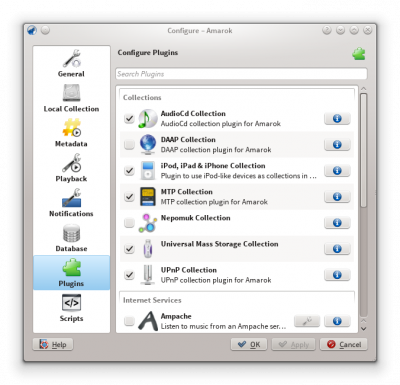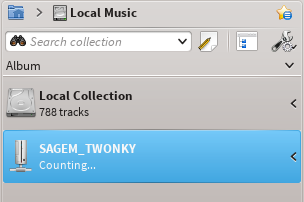Amarok/Manual/Organization/Collection/RemoteCollections/UPnP/pl: Difference between revisions
(Updating to match new version of source page) |
(Updating to match new version of source page) |
||
| (One intermediate revision by one other user not shown) | |||
| Line 18: | Line 18: | ||
[[File:Amarok_2.8_UPnP_collection.png|center]] | [[File:Amarok_2.8_UPnP_collection.png|center]] | ||
<span class="mw-translate-fuzzy"> | |||
Funkcjonalność UPnP zależy od wbudowanej w '''KDE''' obsługi UPnP. | Funkcjonalność UPnP zależy od wbudowanej w '''KDE''' obsługi UPnP. | ||
</span> | |||
{{Prevnext2 | {{Prevnext2 | ||
| Line 26: | Line 28: | ||
}} | }} | ||
[[Category:Amarok2.8/pl]] | |||
[[Category: | |||
[[Category:Multimedia/pl]] | [[Category:Multimedia/pl]] | ||
[[Category: | [[Category:Samouczki/pl]] | ||
Latest revision as of 21:52, 17 July 2015
Uniwersalny Plug and Play (UPnP)
UPnP jest zestawem protokołów do współdzielenia mediów w sieci. Jest również obsługiwany przez niektóre urządzenia sieciowe. Obsługa UPnP jest zwykle oznaczana przez DLNA.
Amarok has a built-in UPnP media share client so it can play tracks shared on the network. To enable it, use and check the box by the UPnP Collection plugin.

When a media share is discovered it will be shown in Local Music.

Funkcjonalność UPnP zależy od wbudowanej w KDE obsługi UPnP.
